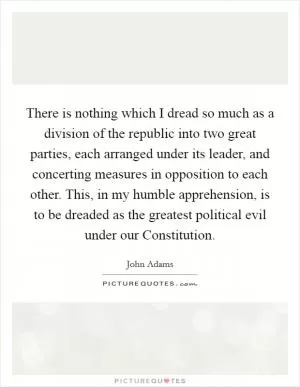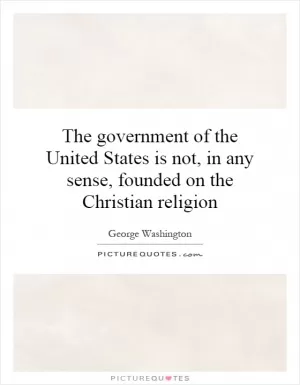Fear is the foundation of most government

Fear is the foundation of most government
John Adams, one of the founding fathers of the United States and the second President of the country, once famously said, "Fear is the foundation of most government." This statement holds a profound truth that is still relevant in today's political landscape.Adams understood that fear is a powerful tool that can be used by governments to control their citizens. Throughout history, governments have often relied on instilling fear in their people to maintain power and authority. Whether it be through the threat of punishment, the use of propaganda, or the creation of a common enemy, fear has been a driving force behind many political decisions.
In the context of John Adams, this statement can be seen in his own actions as President. During his presidency, Adams faced numerous challenges, including threats from foreign powers and internal political divisions. In response to these challenges, Adams implemented policies that were often driven by fear. For example, he signed the Alien and Sedition Acts, which were aimed at limiting the influence of immigrants and suppressing dissent against the government. These acts were criticized for infringing on the rights of individuals and for being motivated by fear rather than reason.
Furthermore, Adams' statement can also be applied to the broader history of government. Throughout the centuries, rulers have used fear to maintain control over their subjects. From ancient empires to modern democracies, fear has been a common tactic used by those in power to ensure obedience and compliance.
However, it is important to note that fear is not the only foundation of government. While fear can be a powerful tool, it is ultimately unsustainable in the long run. Governments that rely solely on fear to maintain control often face backlash from their citizens and struggle to maintain legitimacy. As Adams himself recognized, a government built on fear is inherently unstable and prone to collapse.












 Friendship Quotes
Friendship Quotes Love Quotes
Love Quotes Life Quotes
Life Quotes Funny Quotes
Funny Quotes Motivational Quotes
Motivational Quotes Inspirational Quotes
Inspirational Quotes